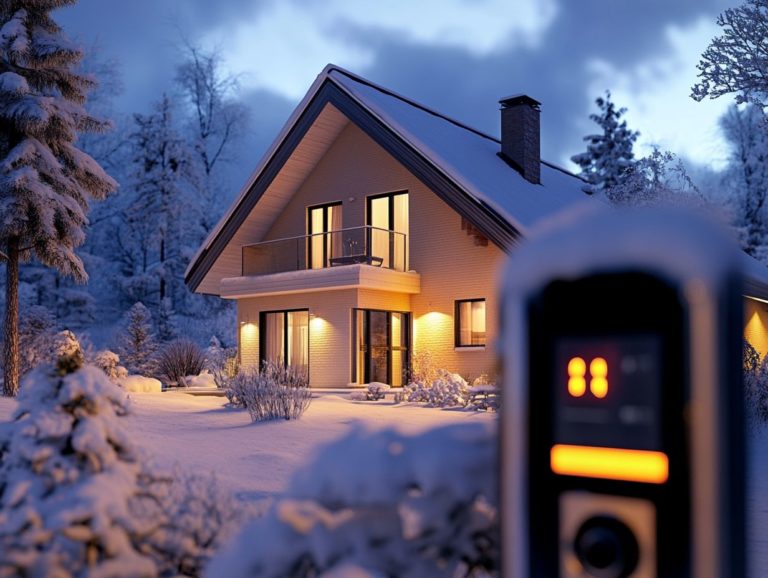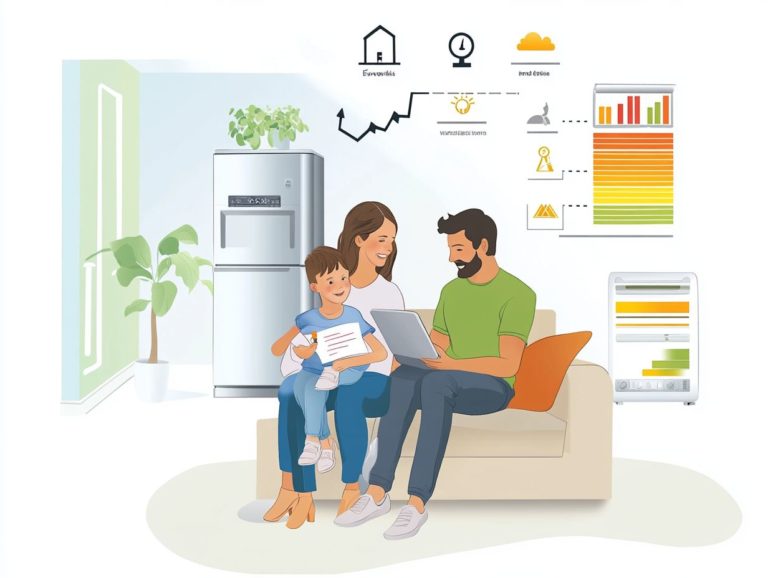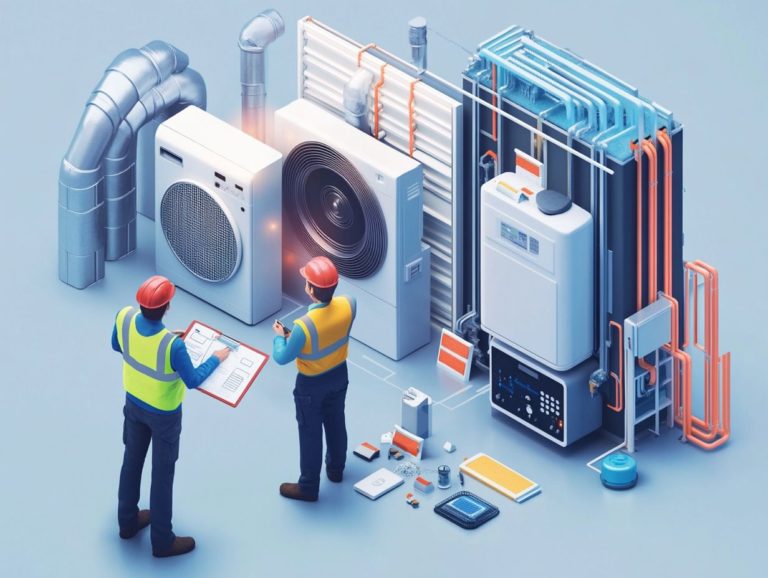How to Make Energy Audits Work for You
Energy audits are crucial for anyone aiming to boost energy efficiency, cut costs, and reduce their environmental footprint. Get ready to harness energy for your benefit!
This article delves into what an energy audit entails, the many benefits it offers, and the various types available to you. It takes you through the audit process step-by-step, clarifying how to effectively interpret and act on the results you receive.
You will also find valuable tips on selecting the right energy audit provider, ensuring you maximize the return on your investment.
Contents
Key Takeaways:
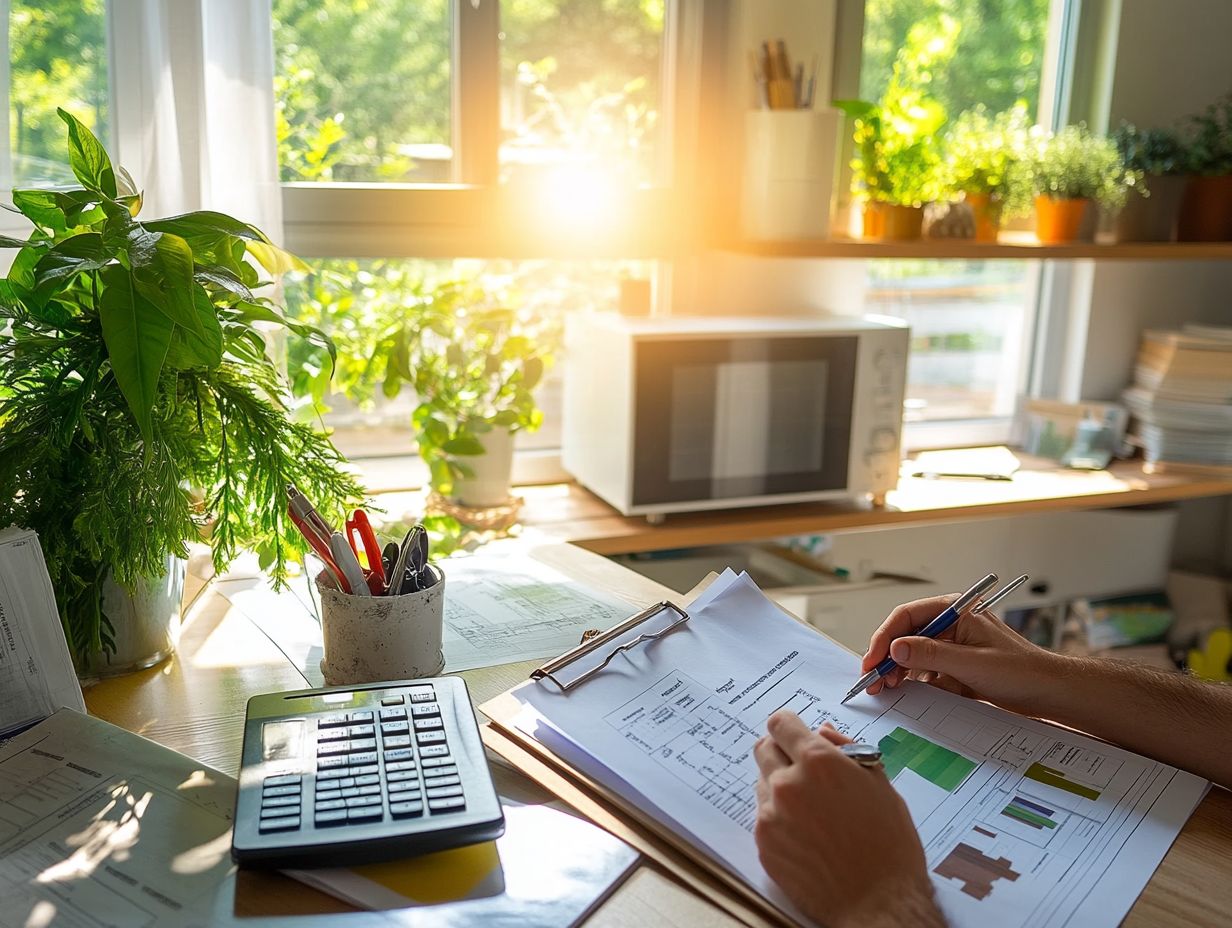
Save money and reduce your environmental impact by conducting an energy audit.
There are different types of energy audits, so choose one that best fits your needs and budget.
Make the most of your energy audit by taking action on the results and learning how to maximize your energy audit results while choosing a qualified provider.
What is an Energy Audit?
An energy audit is a thorough evaluation of your home’s energy consumption. It is designed to pinpoint opportunities for enhancing energy efficiency.
This process lowers your energy bills and reduces your carbon footprint.
Conducted by skilled energy auditors, the audit utilizes an array of advanced tools and techniques think infrared cameras and blower door tests to scrutinize your heating, ventilation, and air conditioning (HVAC) system, insulation, and air leakage.
In the end, you ll receive a detailed energy audit report filled with personalized recommendations for energy conservation improvements tailored specifically to your home.
The Benefits of Conducting an Energy Audit
Conducting an energy audit offers you a wealth of benefits. You’ll enjoy substantial cost savings on your energy bills, a smaller carbon footprint, and an increase in comfort within your living spaces.
This process helps you identify valuable opportunities to save energy.
Types of Energy Audits
You have a variety of options when it comes to energy audits. There are professional energy audits carried out by certified energy advisors who bring expertise to the table, and DIY energy audits that you can conduct yourself. By utilizing an energy audit checklist, you can effectively assess your energy efficiency and consumption, enabling you to make informed decisions about your home s energy use.
The Process of Conducting an Energy Audit
Conducting an energy audit is a meticulous process that involves a series of systematic steps. You’ll begin with a thorough inspection of your property, utilizing specialized energy auditor tools such as infrared cameras and blower door tests. To effectively promote your services, consider exploring how to market your energy audit business.
These tools will help you identify air leaks and pinpoint areas that require sealing, ultimately enhancing your energy efficiency.
Interpreting and Acting on Energy Audit Results
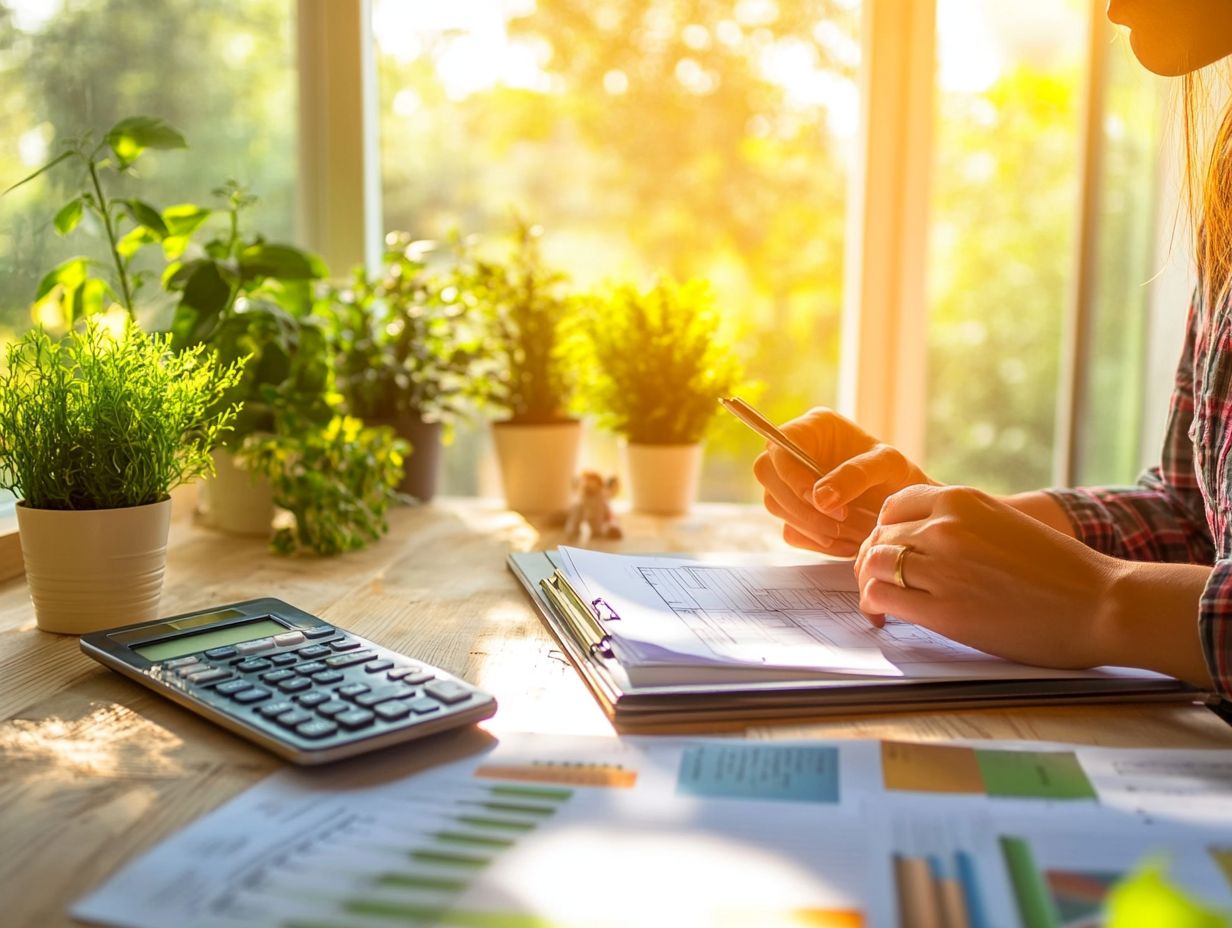
Interpreting and acting on the results of an energy audit is essential for you as a homeowner seeking to implement effective energy efficiency measures and improvements.
The energy report offers detailed recommendations that will guide your necessary actions, helping you optimize energy usage (how much energy your home consumes) and significantly reduce your utility bills.
How to Choose an Energy Audit Provider
Selecting the right energy audit provider is crucial for securing an accurate assessment. As a homeowner, you should carefully evaluate factors such as the auditor’s qualifications, experience, and understanding of local utility programs and energy rebates. Additionally, preparing your home for an energy audit can also enhance the evaluation process.
These elements play a significant role in ensuring you receive the most comprehensive and beneficial evaluation for your energy needs. Don’t wait! Selecting the right provider can save you money and energy.
Definition and Purpose
An energy audit focuses on evaluating your property’s energy consumption. It uncovers opportunities to enhance energy efficiency, reduce costs, and minimize your environmental impact.
By carefully looking at various systems in your home, from heating and cooling to appliances, the audit identifies areas for improvement. Understanding why you need regular energy audits enables you to make informed choices about upgrades and modifications, leading to significant savings on your energy bills.
Moreover, these audits also benefit the environment by reducing carbon footprints, supporting renewable energy sources, and promoting sustainable living practices.
In summary, an energy audit is essential for saving money and helping the planet.
Cost Savings and Environmental Impact
Energy audits provide substantial cost savings and a positive environmental impact by identifying energy efficiency measures that can lower your utility bills and cut overall energy consumption.
By pinpointing areas of energy waste like outdated heating systems or poorly insulated buildings these assessments empower homeowners and business owners alike to implement smart changes.
For instance, a recent audit revealed that switching to LED lighting can dramatically reduce electric costs over time while also shrinking your carbon footprint.
Implementing recommendations such as upgrading to energy-efficient appliances or optimizing your heating and cooling systems not only reduces expenses but also contributes significantly to environmental conservation.
This proactive approach shows how a few small adjustments can lead to major benefits for both your wallet and the planet.
Overview of Different Approaches
When considering energy audits, you have two main options: professional audits conducted by certified energy auditors and DIY audits that you can perform using a simple checklist.
Each method has its own advantages and potential drawbacks, catering to your unique needs as a homeowner.
Professional energy audits offer detailed evaluations using advanced tools and techniques, providing a thorough understanding of any energy efficiency issues. They can uncover hidden problems, resulting in significant savings on your utility bills.
Conversely, DIY audits allow you to take charge of your energy efficiency journey, giving you a sense of ownership and knowledge about your property. While these self-guided assessments may not match the accuracy of a trained auditor, they can still provide valuable insights into understanding your energy bill after an audit.
Step-by-Step Guide
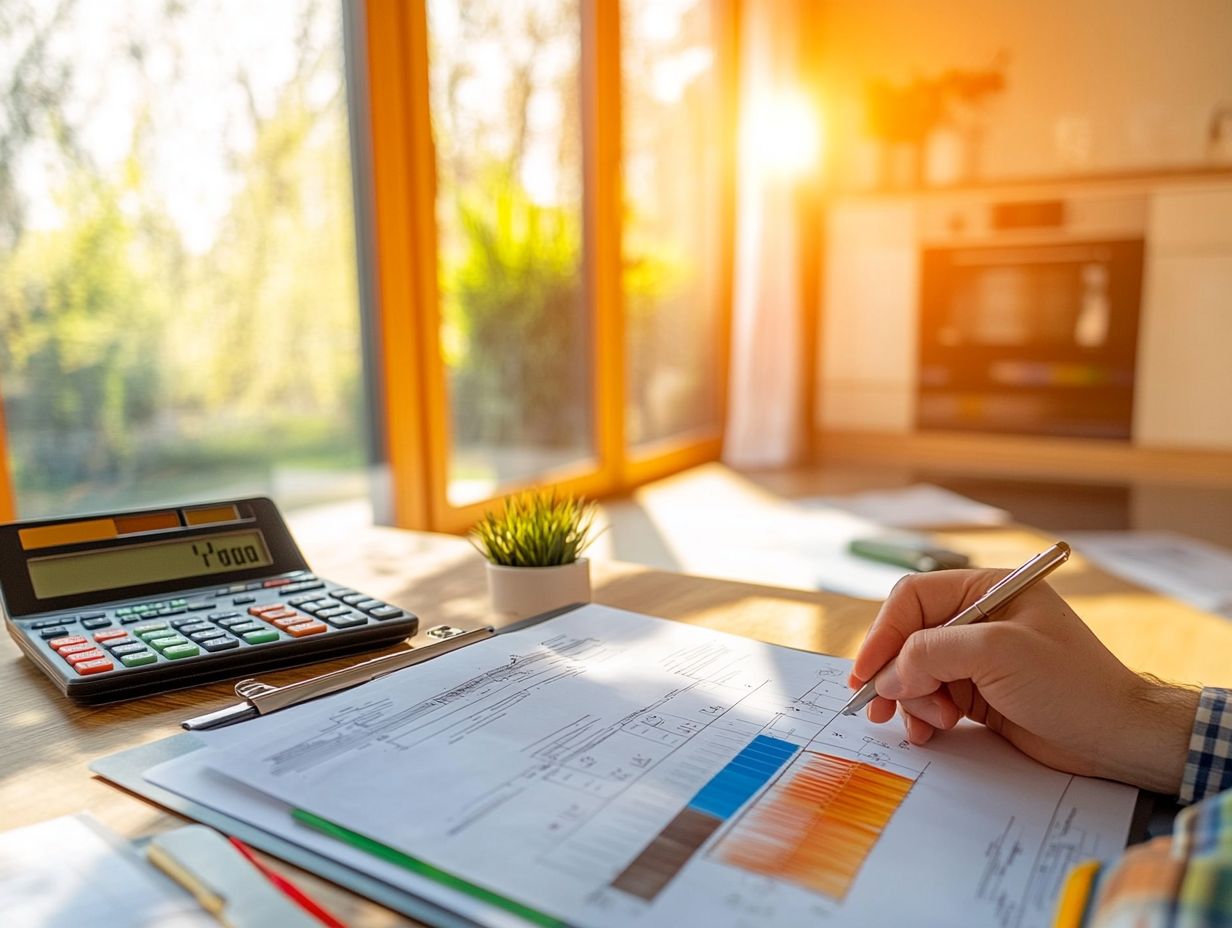
Conducting an energy audit is a systematic process that unfolds in three key phases: preparation, inspection, and analysis. You’ll want to use tools like the blower door test, which measures air leaks, and infrared cameras to assess energy efficiency effectively. For more insights, check out the benefits of going green with energy audits.
Once you ve defined your initial steps, start gathering historical energy consumption data. This will help you identify patterns and highlight areas needing attention. The preparation phase is essential, as it involves setting the audit’s scope and addressing any specific concerns raised by the building owner.
During the inspection phase, conduct visual examinations of insulation, windows, and HVAC systems. Using specialized instruments will allow you to detect energy losses accurately.
Finally, in the analysis phase, scrutinize the compiled data to generate actionable recommendations, ensuring you achieve a comprehensive understanding of the building’s energy performance.
Start your energy audit today and take the first step toward saving money and protecting the Earth!
Implementing Energy Efficiency Measures
Implementing energy efficiency measures from your energy audit is essential for maximizing savings. This also enhances your home’s overall energy management.
Prioritize upgrades like high-efficiency appliances and smart thermostats. These changes can reduce energy consumption and create a more comfortable living environment.
Improve insulation and seal air leaks to lower heating and cooling costs. These steps foster a sustainable approach to energy use.
Incorporating renewable energy sources, such as solar panels, lets you generate clean energy. This results in substantial long-term savings and aligns with environmental conservation goals.
Factors to Consider and Questions to Ask
Selecting an energy audit provider involves considering key factors. Look at the auditor’s qualifications, expertise, and the right questions to ask for an effective audit.
Investigate the auditor s certifications from reputable organizations. Certifications often signal a higher standard of professionalism.
Check for providers with a solid track record in your community. Customer testimonials or references can highlight their reliability and service quality.
Understand the scope of the audit. Clarify which areas will be assessed, such as insulation, HVAC systems, or energy-saving upgrades.
Ask about the methods and tools the auditor will use. This insight will help you gauge how comprehensive the evaluation will be.
Frequently Asked Questions
What is an energy audit and why is it important?
An energy audit examines a building’s energy use and efficiency. It’s important because it identifies wasted energy and suggests ways to cut costs.
How do I prepare for an energy audit?

Gather your utility bills and list all energy-consuming devices in your home. Note any drafts or inefficiencies you’ve noticed.
Who can perform an energy audit?
Energy audits can be performed by professional auditors, utility companies, or through self-assessments. Hiring a certified energy auditor ensures a thorough evaluation.
What are some common techniques used in energy audits?
Common techniques include tests for air leaks, thermal imaging to find heat loss, and analyzing energy bills to identify high usage areas.
How can I use the results of an energy audit to make improvements?
The audit results guide improvements like upgrading appliances and sealing leaks. Prioritize changes based on impact and cost.
How often should I have an energy audit performed?
Get an energy audit at least every five years or after major renovations. Regular audits keep your energy usage and expenses optimized.
Ready to save energy and money? Schedule your energy audit today!


